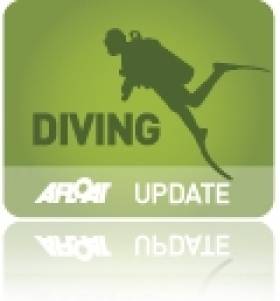Displaying items by tag: Edward Bourke
NUI Galway Hosts Talk on Historical Wreck Diving in Ireland
#DIVING - The Sub-Aqua Club at NUI Galway and the Galway-Mayo Institute of Technology welcomes diving expert Edward Bourke to the NUI Galway campus on 18 October to give a talk on historical wreck diving in Ireland.
The talk will take a look at some of the exploits of wreck and salvage dives in Ireland over the years, exploring the nation of the Irish coast as a hotbed of pioneering subaquatic activity, driven mostly by the recovery of shipborne cannons - not only because of their expense, but also to prevent their falling into the hands of insurgents.
Bourke will give his talk at the Siobhán McKenna Theatre in the Arts Millennium Building at 7pm on Thursday 10 October. The evening will be of interest to local historians and divers alike. And as much of the activity was on the west coast, there is some local maritime interest, too.
Edward Bourke is a microbiologist, maritime historian and diver with Viking Sub Aqua in Dublin for 30 years and has dived in Australia, South Africa, Spain, Croatia, France and UK as well as Ireland. He has published three volumes on Shipwrecks of the Irish Coast, cataloguing some 6,000 wrecks in Irish waters, as well as a book of Irish shipwreck photos and a volume on the wreck of the Tayleur at Lambay Island. A scientist with Diageo, Bourke's most recent publication is a history of Guinness.
























































